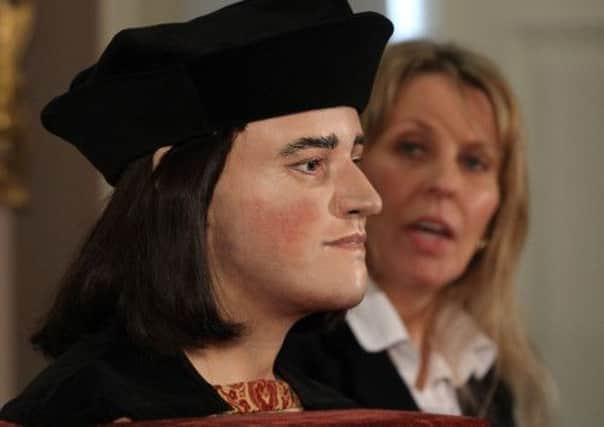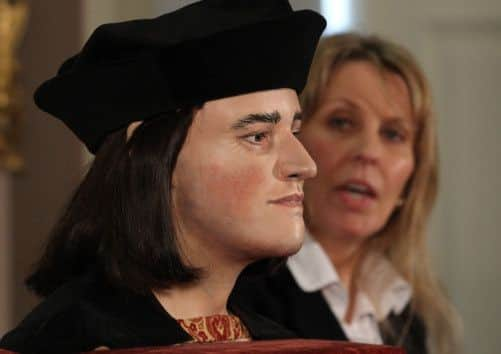University ‘hijacked’ Richard III bones discovery


The discovery of the skeleton of one of England’s most notorious monarchs under a council car park in Leicester has become mired in a legal battle that has been taken to the High Court in London to decide where the bones should be laid to rest.
But the Yorkshire Post can reveal the full extent of the simmering tensions which have escalated between founding members of the Looking for Richard Project and the management at the University of Leicester, who stand accused of exploiting the landmark find.
Advertisement
Hide AdAdvertisement
Hide AdDavid and Wendy Johnson, from York, have spoken out for the first time after becoming “progressively frustrated and disenchanted” with the actions of the university’s academics, who they claim have reneged on a series of agreements made before the discovery of Richard’s remains.


The couple, who helped a Scottish-based screenwriter, Philippa Langley, establish the Looking for Richard Project, have alleged the university had to “quietly abandon” plans to put the skeleton on display due to a public outcry.
They have also claimed an agreement between Ms Langley and archaeologists to transfer the remains to a “carefully selected place of Catholic sanctity” for prayer before burial has been thwarted by the university.
But perhaps the most worrying claim is that Leicester Cathedral, where the remains are due to be reinterred, is coming under increasing pressure from the university to ensure the bones will be available for exhumation if more research is needed.
Advertisement
Hide AdAdvertisement
Hide AdDr Johnson, 55, who works as a freelance historian, said: “We were overjoyed when it was confirmed that we had found the remains of Richard but this has quickly turned sour, largely due to the actions of the university.
“It has been extremely frustrating, and very upsetting at times.
“It has been a real battle but what has kept us going is trying to do the right thing and honour Richard with the burial that he deserves.
“This did not happen when he died back in 1485, and this has always been our motivation. We feel that once the remains have been laid to rest, then they should remain so for in perpetuity.”
Advertisement
Hide AdAdvertisement
Hide AdSince it was confirmed that the skeleton found in Leicester was that of Richard following DNA tests, a debate has raged as to where the remains should be reinterred.
The campaign for his last resting place to be in York Minster has been backed by MPs, councillors, academics and tourism chiefs.
An online petition calling for the skeleton to be brought to Yorkshire has attracted nearly 30,000 names and Dr Johnson urged supporters to add their signatures ahead of a deadline on Tuesday next week. Richard’s descendants from the Plantagenet Alliance have launched a High Court challenge to the decision by the Ministry of Justice and the University of Leicester to push ahead with the burial in Leicester Cathedral.
The university has launched a staunch defence in its involvement in the archaeological dig, and stressed it had “led and principally funded” the excavations in partnership with Leicester City Council and the Richard III Society.
Advertisement
Hide AdAdvertisement
Hide AdA spokesman said: “The university supports the view of the Richard III Society and other partners that reinterment is a final act with an over-riding need for dignity.
“The university declines to comment on allegations conflated from various sources designed to promote the Plantagenet Alliance’s interests.”
Leicester City Council declined to comment, while no-one was available from the city’s cathedral.